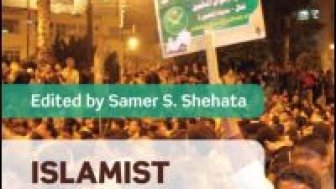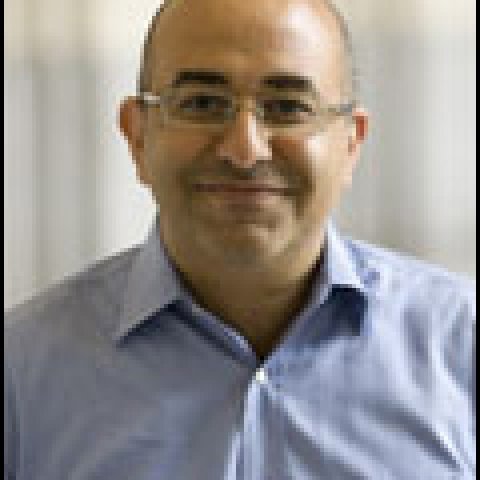Samer S. Shehata
Former Fellow
Professional Affiliation
Assistant Professor of Arab Politics, Edmund A. Walsh School of Foreign Service, Georgetown University
Expert Bio
I am an Assistant Professor at the Center for Contemporary Arab Studies at Georgetown University where I teach courses on different aspects of Middle East politics. Most of my research has focused on Egyptian politics and society, and I am originally from Egypt. Before coming to Georgetown I spent a year at New York University's Center for Near Eastern Studies, where I served as Director of Graduate Studies, and another year at Columbia University's Society of Fellows in the Humanities. My first project focused on working class culture and politics in Egypt. I undertook an ethnography of two Egyptian textile factories, examining class formation at the micro-level—inside the factory— at the point of production. The research adopted a practice-centered theory of social class which highlighted the importance of culture and the symbolic dimensions of class formation. I explored shop floor culture, authority relations in the factory, power and resistance, and the epistemology of ethnographic knowledge production. The most interesting and original aspect of the study was methodological: I worked as a "winding machine operator" in both factories for ten months. A book based on the research is forthcoming from the State University of New York Press. My project at the Wilson Center constitutes an entirely new direction. I will examine the intersection of two increasingly important political phenomena in the Middle East (and beyond): semi-authoritarian elections and Islamist electoral participation. I came to the topic while spending the 2005-2006 academic year in Cairo. During that time, Egypt experienced two elections: the country's first multi-candidate presidential election and fiercely contested parliamentary elections. Although the outcome of the presidential "election" was completely unsurprising, the parliamentary contest proved especially exciting and historic as Muslim Brotherhood candidates won 88 seats in parliament, their best performance ever. I am interested in both of these phenomena: unfree elections and why parties, and particularly Islamists, chose to participate in such elections. More specifically (and theoretically), I am interested in what elections in semi-authoritarian regimes mean to citizens, voters, candidates, political parties and regime officials (that is, how they understand such elections); what semi-authoritarian elections look like (what campaigns entail, how candidates "connect" with voters, etc.) and what semi-authoritarian elections do, namely how they function (and their significance) in such political systems. I also observed Kuwait's 2006 legislative elections and I was an election observer during Morocco's 2007 parliamentary balloting. In both cases, I was particularly interested in the performance of Islamist parties and candidates. In Egypt, Kuwait and Morocco, as in other countries, Islamists have performed remarkably well at the ballot box. What explains their electoral success? What policies have Islamists pursued once in parliament? And does participation in electoral politics strengthen Islamist groups' commitment to democratic principles and institutions? I hope to explore these questions concretely through an examination of Egypt's 2005 parliamentary elections and case studies of the Egyptian Muslim Brotherhood, Morocco's Party of Justice and Development and Kuwait's Islamic Constitutional Movement.
Education
BA (1990) Political Science, Middle East Studies, UC Berkeley; M.Phil. (1991) Social and Political Theory, Cambridge; Ph.D. (2000) Politics, Princeton
Experience
- Assistant Professor of Arab Politics, Center for Contemporary Arab Studies, Georgetown University, 2005-Present
- Assistant Professor/Faculty Fellow & Director of Graduate Studies, Center for Near Eastern Studies, New York University, 2000-01
- Major Cultures Fellow, Society of Fellows in the Humanities, Columbia University, 1999-2000
Expertise
Middle East politics; Islamist politics; U.S.-Middle East relations; comparative politics; U.S. Foreign Policy; Egypt
Wilson Center Project
"Islamist Electoral Participation in Middle East: Prospects for Democracy?"
Project Summary
My project focuses on Islamist participation in elections in Egypt and other Middle Eastern states. Why do Islamists compete in semi-authoritarian elections despite little chance of coming to power through the ballot box? What explains their electoral success? What policies have they pursued once in parliament? And does participation in electoral politics strengthen Islamist groups' commitment to democratic principles and institutions? I explore these questions through an examination of Egypt's 2005 parliamentary elections and case studies of the Egyptian Muslim Brotherhood, Morocco's Party of Justice and Development and Kuwait's Islamic Constitutional Movement.
Major Publications
- Shop Floor Culture and Politics in Egypt (SUNY Press, Series in the Social and Economic History of the Middle East) forthcoming 2009.
- "Boxing in the Brothers," coauthor with Joshua Stacher, MERIP Online (August 2007)
- "The Brotherhood Goes to Parliament," coauthor with Joshua Stacher, MERIP (Fall 2006)
- "Ethnography, Identity and the Production of Knowledge," in Interpretation and Method: Empirical Research Methods and the Interpretive Turn,eds., Dvora Yanow and Peri Schwartz-Shea (Armonk, NY: M.E. Sharpe), pp. 244-263, 2006.
- "In the Basha's House: The Organizational Culture of Egyptian Public-Sector Enterprise," International Journal of Middle East Studies vol. 35, February 2003, pp. 103-132.
Insight & Analysis by Samer S. Shehata
- Article
- Democratic Transition
The Military vs. the Islamists

- Article
- Democracy
New Book by Former Wilson Center Fellow

- Article
- Islamism
Profile of Egypt’s New President Mohamed Morsi

- Past event
- Islamism
The Islamists Are Coming: Who They Really Are


